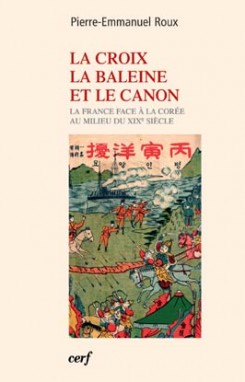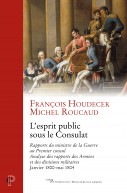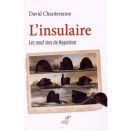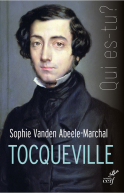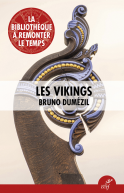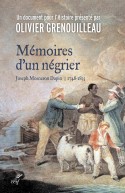La Croix, la baleine et le canon
Collection Petits Cerf Histoire
464 pages - avril 2012
38,50€
« Pays du matin calme et royaume ermite » : voilà à quoi se résument bien souvent nos représentations mentales de la Corée. De tels clichés furent néanmoins forgés au cours du XIXe siècle pour désigner le Choson, un vieux royaume pluricentenaire qui refusait apparemment tout contact avec les puissances occidentales, à commencer par la France. Il faut dire que nos missionnaires y prêchaient clandestinement l'Évangile, que nos marins y pourchassaient les cétacés aux abords des côtes, tandis que nos consuls et officiers de marine tentaient d'apporter aux uns et aux autres secours et protection, s'imaginant même y établir une colonie ou un protectorat. Les représentants de Paris agissaient-ils toutefois par simple devoir ou par humanisme envers leurs compatriotes ? Rien n'est moins sûr. Car si la Corée de ce temps-là passait pour un territoire pauvre et enclavé où réduction en esclavage et exécution sommaire guettaient naufragés et missionnaires, sa situation géographique l'élevait précisément au statut de carrefour stratégique, attisant par là même l'intérêt de ses voisins immédiats, ainsi que de toute puissance désirant s'affirmer sur la scène extrême-orientale. Fondé sur des sources pour la plupart méconnues sinon inédites, cet ouvrage éclaire d'un jour nouveau l'histoire des relations internationales et de l'expansion du catholicisme en Asie à cette époque charnière que fut le milieu du XIXe siècle, balayant ainsi l'idée longtemps acceptée d'un simple choc de civilisations entre l'Occident, chrétien et impérialiste, et l'Extrême-Orient, confucéen et refermé sur lui-même. Ce faisant, l'auteur apporte un regard neuf sur l'actualité des relations franco-coréennes au XXIe siècle.
--
‘A country of peaceful mornings, a hermit kingdom’ – very often, this is how we perceive Korea in our mind’s eye. Yet those clichés took form in the 19th century to describe Joseon, an ancient, centuries-old kingdom which seemingly shunned all contact with western powers, beginning with France. It must be confessed that French missionaries preached the Gospel there clandestinely, and France’s sailors hunted cetaceans off its coasts while its consuls and naval officers attempted to provide help and protection to both these groups, imagining that a colony or protectorate might even be established there one day. But were Paris’s agents acting purely out of duty, or humanist concern for their compatriots? The point is highly debatable. Korea in those days was regarded as an impoverished and isolated land where slavery or summary execution awaited shipwrecked survivors and missionaries, but its precise geographical situation gave it the status of a strategic crossroads, arousing the interest of both its immediate neighbours and every power wishing to establish itself in the Far East. Based on mostly little-known or unpublished sources, this volume casts a new light on the history of international relations and the expansion of Catholicism in Asia during the pivotal period that was the mid-19th century. The author sweeps aside the long-held concept of a simple clash of civilisations between the Christian, imperialist West and the Confucian, inward-looking Far East; and in doing so, casts new light on Franco-Korean relations today.
--
‘A country of peaceful mornings, a hermit kingdom’ – very often, this is how we perceive Korea in our mind’s eye. Yet those clichés took form in the 19th century to describe Joseon, an ancient, centuries-old kingdom which seemingly shunned all contact with western powers, beginning with France. It must be confessed that French missionaries preached the Gospel there clandestinely, and France’s sailors hunted cetaceans off its coasts while its consuls and naval officers attempted to provide help and protection to both these groups, imagining that a colony or protectorate might even be established there one day. But were Paris’s agents acting purely out of duty, or humanist concern for their compatriots? The point is highly debatable. Korea in those days was regarded as an impoverished and isolated land where slavery or summary execution awaited shipwrecked survivors and missionaries, but its precise geographical situation gave it the status of a strategic crossroads, arousing the interest of both its immediate neighbours and every power wishing to establish itself in the Far East. Based on mostly little-known or unpublished sources, this volume casts a new light on the history of international relations and the expansion of Catholicism in Asia during the pivotal period that was the mid-19th century. The author sweeps aside the long-held concept of a simple clash of civilisations between the Christian, imperialist West and the Confucian, inward-looking Far East; and in doing so, casts new light on Franco-Korean relations today.
- Dimensions : 125x195x22
- ISBN : 9782204095082
- Poids : 520 grammes
DANS LA CATÉGORIE HISTOIRE GÉNÉRALE
Mémoires d'un négrier
de Nicole BEAU ,Olivier Grenouilleau ,Joseph Mosneron Dupin
336 pages - sept. 2021

